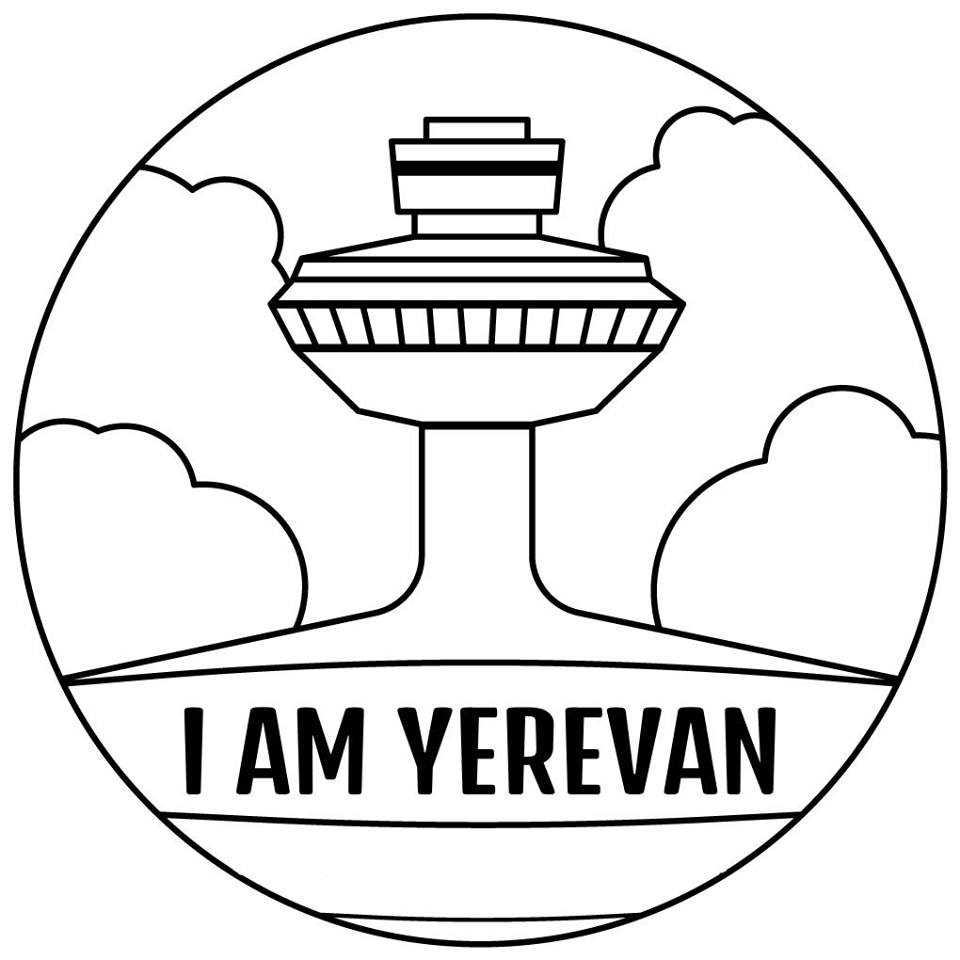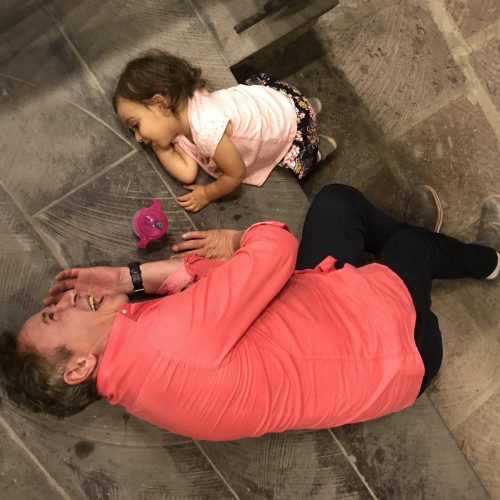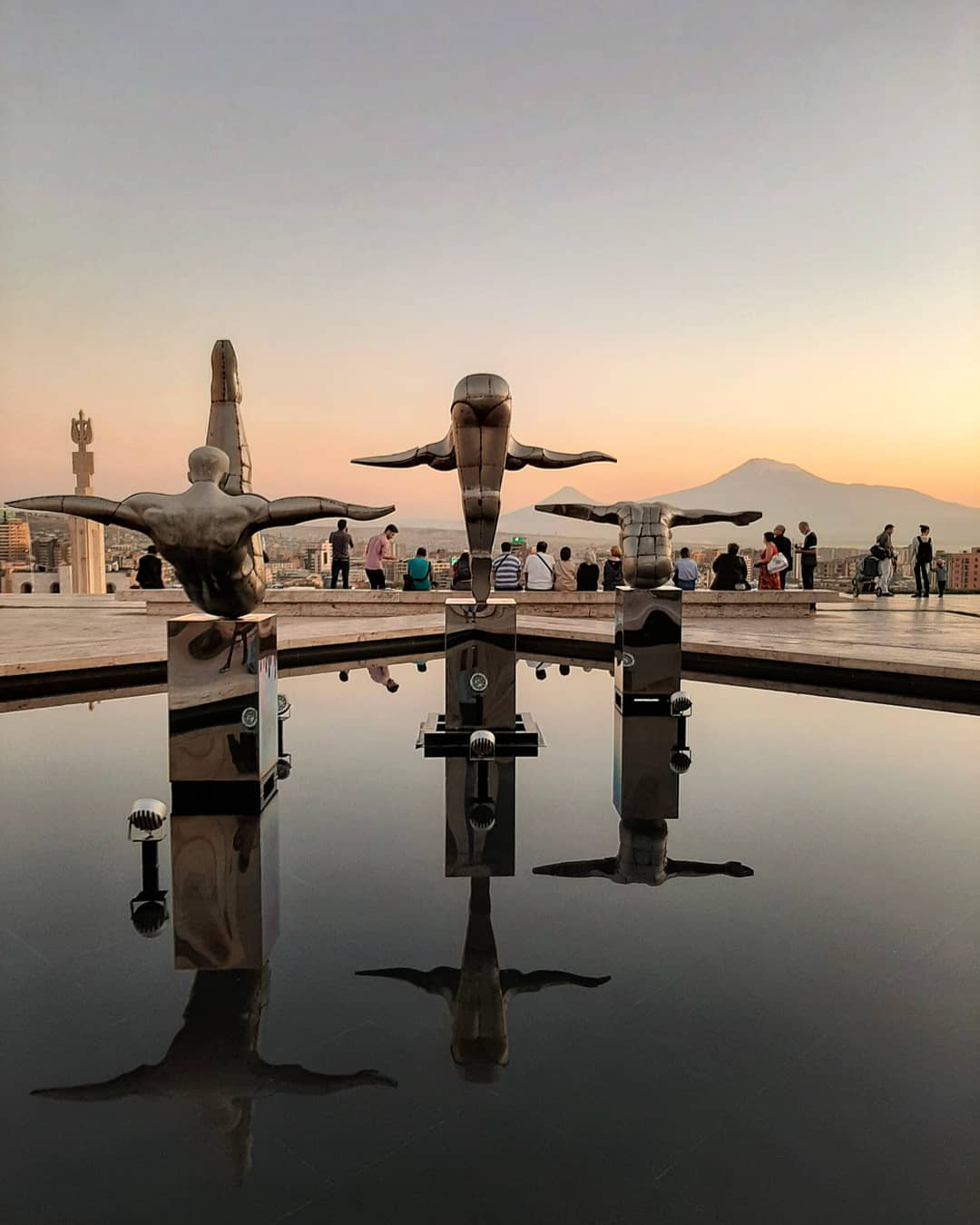
Cascade and the Cafesjian Center for the Arts
December 8, 2019
Never Stop Working On Yourself
April 10, 2020Pioneering Silicon Valley entrepreneur and investor Magdalena Yeşil was the first investor and a founding board member of Salesforce.
Recently she published her book - "Power Up: How Smart Women Win in the New Economy."
I had the opportunity to watch her live at WCIT 2019 in Armenia and wanted to learn about her and her life, so when we finally had a meeting date set, I was really looking forward to it. We talked about investing and taking risks, the tech industry's gender discrimination problem 20 years ago and now. Last but not least, we had a fun conversation.
Magdalena Yesil - Sorry for the changes in the calendar, these are incredibly busy and packed times. Usually, I have better control of my calendar.
AK- I can understand that and if not a secret, what’s the reason for the packed times? More deals coming through or personal stuff?
Magdalena Yesil - A ton of travel on my side, lots of business to attend to.
AK- As I understand, you are now driving to your work, do you usually drive long distances on the west coast?
Magdalena Yesil - We do, California is a big state, and we can drive an hour even without thinking.
AK- And what do you do: calls, audiobooks or music?
Magdalena Yesil - No, I am always on a call. My calls are packed. Every 15-20 minutes, I have a call, so usually, my road trips to work are highly productive.
AK- So, I read that when you were leaving Turkey, your family was throwing buckets of water after you, which resembles the wish to always find a way around obstacles, which is what water does when it meets an obstacle. Honestly, we have been doing it for years, but only after reading your interview, I found out why.
Magdalena Yesil - Yeah. It's like repeating the tradition without actually knowing why.
AK- My grandma has been doing it, my mom does it, and there is a “fight” every time I go on a trip, with me trying to stop them, but they persistently keep on doing it. Now I know what it's actually about.
Magdalena Yesil - And you are going to urge to do it even more now.
AK- Absolutely! But a lot of times, when I hit an obstacle that throws me off the usual state, I start thinking, whether it’s worth spending time, energy and resources, and kind of re-evaluate my objective. Sometimes I step back as a result. How do you actually know when is it worth fighting for something?
Magdalena Yesil- You don’t. It's not like there is a crystal ball that is magically telling you that this will work out. So, you basically you go with your instincts. If it's important for you, you keep fighting for it, and if you see that the possibility of winning is very very low and of low importance, maybe it's time to change course. The idea is not to fight for everything, the idea with water is to have the flexibility of path and to keep moving forward. It might not be exactly the same direction you initially chose. Water often changes its path, but it never stops. When there is enough water, it becomes a pool and is able to push the soil. In short, water does not give up: it just alters direction or approach.
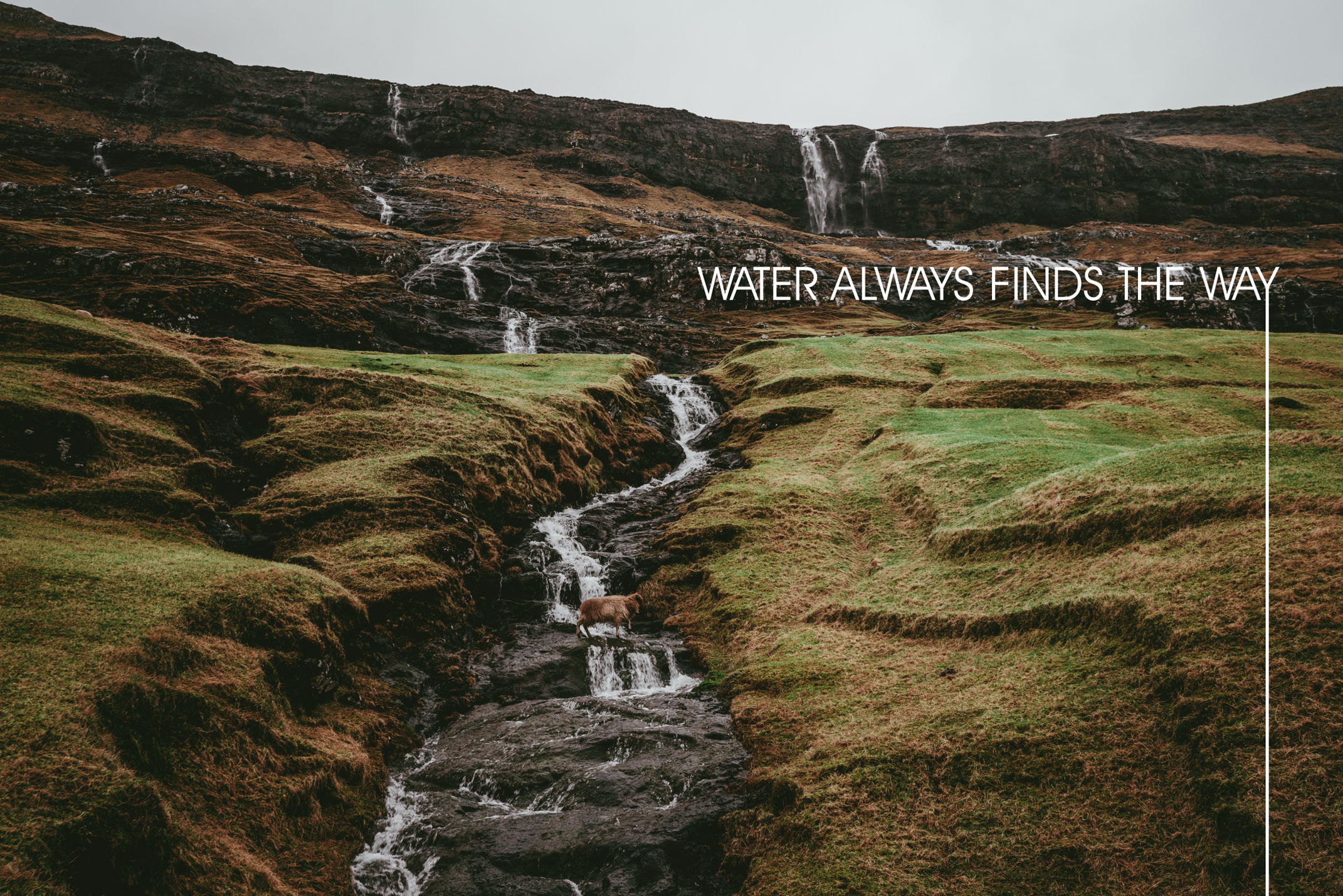
AK- I’m sorry, I forgot to tell a little bit about myself, I do storytelling for businesses, which is something new in Armenia and the region in general. We help companies communicate their values, which are often very technical, and the founders have a hard time telling their stories.
Magdalena Yesil - And where do they teach storytelling in Armenia?
AK - I earned my Masters Degree in Mechanical Engineering in Armenia, which didn’t open great employment perspectives at that time. The journey started when my friend and I started buying and selling mobile phones at the University, then I became an insurance agent, then a sales executive, all this in parallel with University. So when I graduated, I knew I had to do sales.
Magdalena Yesil - That explains a lot because engineering education teaches you how to think, and it doesn’t necessarily mean that you have to be designing a gadget. When you became a mechanical engineer, you just learned to think like an engineer, which is a huge talent.
AK- Agree, it helps tremendously with problem-solving, setting priorities and approaching issues. Magdalena, you were one of the first people to invest in The Cloud, which was a very risky thing to do 20 years ago. A question that I ask a lot of investors I know: how do you treat the money you invest in a startup? Do you consider it gambling?
Magdalena Yesil - First of all, I’m a big risk taker in business. I am willing to take big risks in everything I do. With my personality type, I am comfortable when I take a big risk, sometimes I win but sometimes I lose. I’m comfortable with either outcome, and the only way you can take risk is when you’re comfortable with losing the money. So the way I treat every dollar I invest is asking myself the question: how would I feel if it was all gone? Because most of the time that’s what happens. So if you don’t feel comfortable with writing off (that’s what we call it), you better not invest. But I don’t have an expensive lifestyle. I don’t travel in private jets. I don’t drive an expensive car, so I don’t have a lot of things I need to put my money into, except for businesses. What I’m focused on today is my own startup, so I’m not investing anymore. But my investment experience from the past taught me to cope with the idea of losing money and feeling OK about it.
AK- A lot of people compare investing with going to Las Vegas.
Magdalena Yesil- I don’t go to Las Vegas, I don’t gamble. I think that gambling is a very bad analogy because in Las Vegas you might think you have control but you only have a chance, and business is a lot more than just chance, it's a process, it's execution. Of course, there is an element of chance. Politics can change, the market can change, the founder might even die, but most of the time in business it's business execution.
AK - And what about treating the money a certain way? In investing you pay to get a return, in gambling you “pay” for the time you spend.
Magdalena Yesil- I invest with the one and only objective - making money in return to the risk I take. I don’t invest to have fun or hang out with certain people, just be nice to people or to please my friends. Those are all bad reasons to make an investment. I invest to make money, but most of the time I know I won’t make money.
AK - My next question will be about the exit. I’ve done a couple of startups, failed all of them, thinking to do a new one. I picture an exit as a big check and a lot of free time, and a big temptation to buy luxury stuff. What did you feel after the first exit?
Magdalena Yesil - Nothing. After my first exit, my life didn’t change one tiny bit, I continued working just like before. I remember I came home and told my mom that my company had an IPO, and she said: “but your kids don’t eat enough fruit.” She could care less.
AK - That must have been very encouraging.
Magdalena Yesil - [laughs] It was kinda disappointing, zero positive reinforcement from my mother.
AK- Personal question. You rejected an offer from Steve Jobs because it didn’t match your lifestyle. What do you think of relationships between two startup people as a couple?
Magdalena Yesil - I think that's very complex and needs to be dealt with on a case by case basis. I used to have a rule against working investing behind a couple, but I’ve relaxed that and learned that sometimes it works very well, so I think that every situation needs to be evaluated individually, and sometimes it's incredibly valuable to have a personal relationship with your co-founder.
AK - You mentioned that you don't invest in friends and family.
Magdalena Yesil - That is not what I had said. I meant to say that it is not my reason to invest behind personal relationships. I have made investments behind the family members.
AK - I see, so you don’t take a founder being your friend as a reason to invest.
Magdalena Yesil - Exactly.
AK- I see you talk about your portfolio companies a lot, but most investors don’t bring up their investments that much. How much should an investor invest and be invested into a company to take that kind of ownership?
Magdalena Yesil - Every single company I’ve invested in, I know (try to know) all the management, and all the issues. I’m not your typical investor, I’m much more of an entrepreneur. I didn’t go to business school, I don’t have a financial background. But every single company I invested in, I treated it as my own company.
AK- I’ll be sure to send you my pitch deck when you’ll be investing again, I’d like to get a partner like that on the board.
Magdalena Yesil - Thank you.
AK - You are an established woman, who has built a career despite systemic sexism. Do you encounter sexism now? And what is the difference between approaches?
Magdalena Yesil - First of all, I never thought I encountered sexism, I encountered bad behavior. But I encountered it not because I'm female, I encountered bad behavior because people had bad behavior. So, I would not say that I’ve had a career where I encountered a lot of sexism.
As I stated in my book when I got to my first job, I went to a sales conference and only see topless girls dancing. Is that sexism? I don't know, the CEO thought it was ok. I told him it was not ok with me, and he changed it. It was resolved. The CEO resolved it. So I cannot call him sexist. Generally, I think of sexism as having bad behavior towards me just because I’m female, but I think life is much more complex than that. Now I’m much more focused on being heard, which I didn’t do 3-4 years ago. I was totally ok being quiet, and I have learned that being quiet is not a good thing.
AK- What I can extract from your last 3 answers is that you have an interesting way of approaching things individually. Be it sexism, relationships or business with friends, you’d rather go deep and see whether it's actually a personal attitude or is it stereotypes after all.
Magdalena Yesil - Thank you very much for saying that, you’re absolutely right. I try to understand the reason behind behavior and the reason behind my own behavior instead of just putting a label on it. Am I a feminist? No, I’m a humanist. I care about people. I don’t care about what gender they are. I equally enjoy hanging out with men and with women, for different reasons, obviously. I don’t like labels, because life is much more complex than that.
AK- That's a great approach, and if we had more people like that, we would have less media pollution influencing people in a bad way.
Magdalena Yesil- Yeah, and life is easier too. You ask yourself, “Why is this person being nasty to me?” instead of saying that they are a bad person. A lot of people say a person is good just because he/she agrees with them and vice versa. We look at the world from a very narrow lens and I tried to teach myself to open up my lens to see other peoples’ points of view. So, instead of characterizing that behavior, I try to see where it comes from.
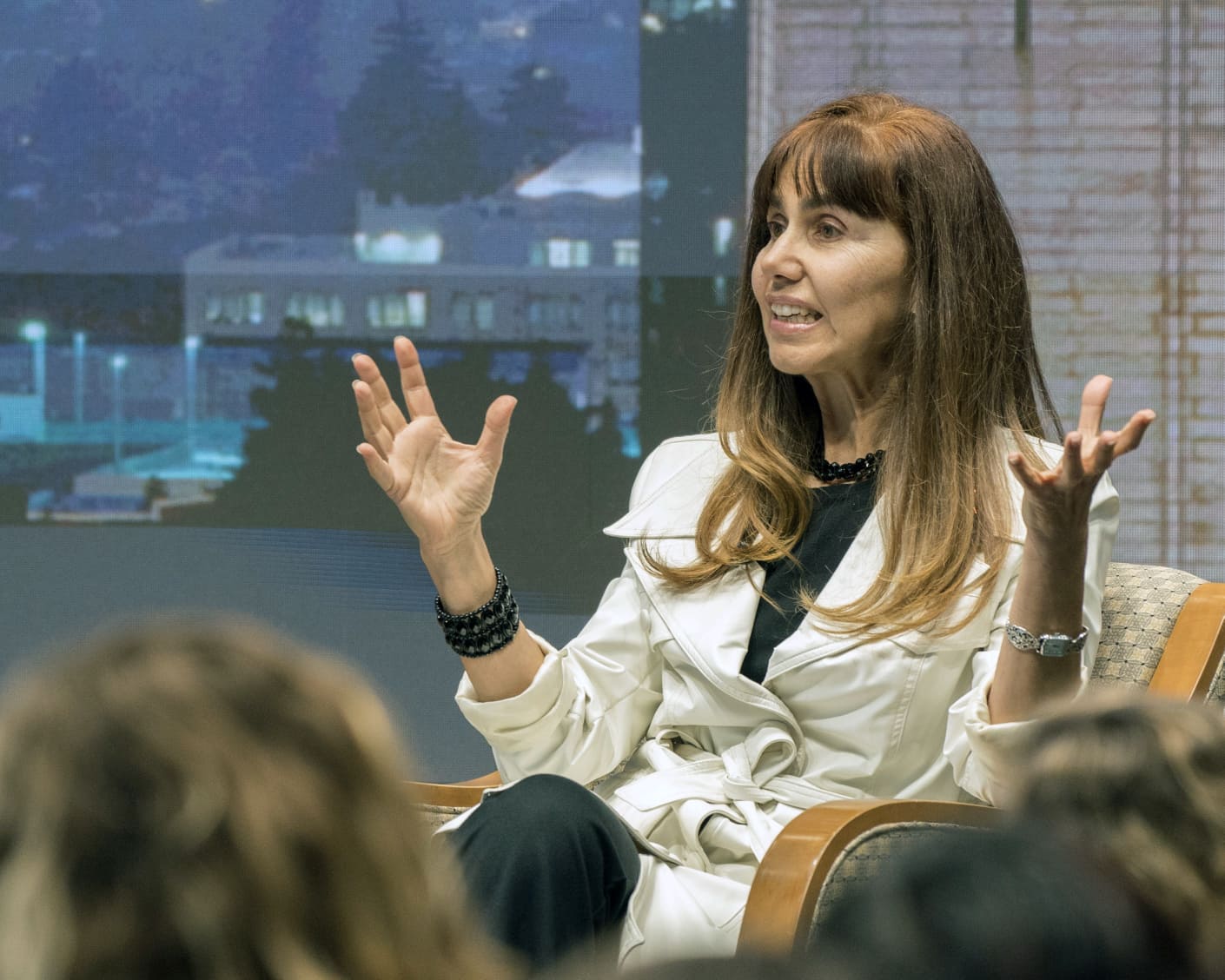
AK - After the Revolution, a lot of Armenians have repatriated and settled down in Armenia or came for a visit. There is an opinion in mainland Armenia that diasporan Armenians look down on us, what would be your opinion about that?
Magdalena Yesil - First of all, no one should look down on anyone else, that's a horrible waste of human energy. If you go to a country and live there, the locals are the ones that make it happen for you, so looking down on them would be stupid and very self-centric.
AK - There is actually a gap in the lifestyles of locals and diasporans.
Magdalena Yesil - … Who cares about lifestyle? Who cares what car you drive or how many bedrooms your house has? Those are so irrelevant. What matters is: are you a good person who feels satisfied when he/she goes to bed at night? What do your friends and family say about you? I think that feeling important because of wealth is really very unsophisticated thinking. .
AK - And what would you say about the differences in business culture?
Magdalena Yesil - Armenian business culture, unfortunately, has had the negative impact of the Soviet system for quite a long time, which did not encourage a business culture. What Armenia has to go through is a whole bunch of learning, not just the culture. Just like athletes who practice every day, we also need to have the experience.
AK - "As a matter of practice, I don’t “do regrets” because it’s a waste of energy." This is your approach to life, is it really so?
Magdalena Yesil - I’m human. I’ve made a lot of mistakes, but I don’t want to sit around and cry. No, I almost never focus on the past. I focus on the future. And by the way, I think that Armenia as a nation should also do this. We (Armenians) all have a sad past, but we have to focus on our future and think how great tomorrow can be versus how bad yesterday was. Looking at the past will not move us forward, we need to focus on making tomorrow great for our friends, our family, our children. That is what “no regret” means.
AK - Amen on that one. Last but not least, how much do you value communication and pitching in startups.
Magdalena Yesil - I think that pitch is an ugly word, but I think that communication is one of the most important human traits; it allows you to convince other people, share your vision. I think that a pitch is overvalued, and the same pitch does not apply to everyone. Storytelling is the most important thing, but boiling it down to one pitch, I don’t like that.
AK - Thank you very much.

Ashot Khudgaryan - helps startups crystallize their vision & goals, create stories that communicate core values and brand culture.
A passionate educator, Ashot has created a comprehensive course on business development in tech, aiming to increase the industry capacity.
